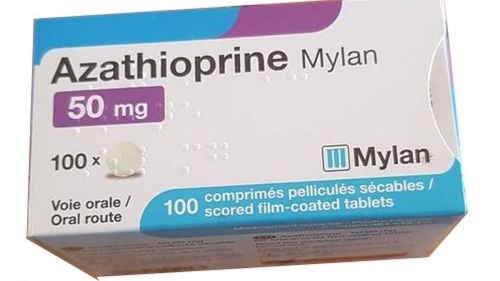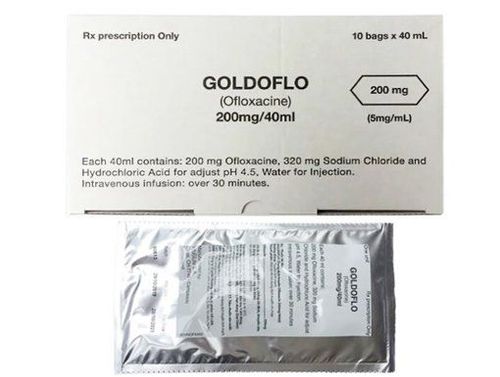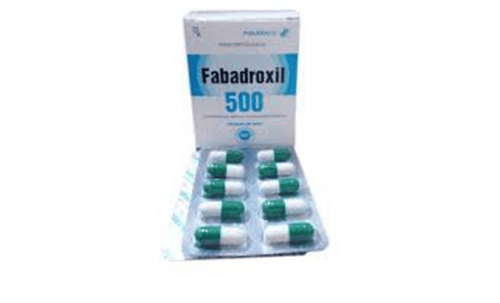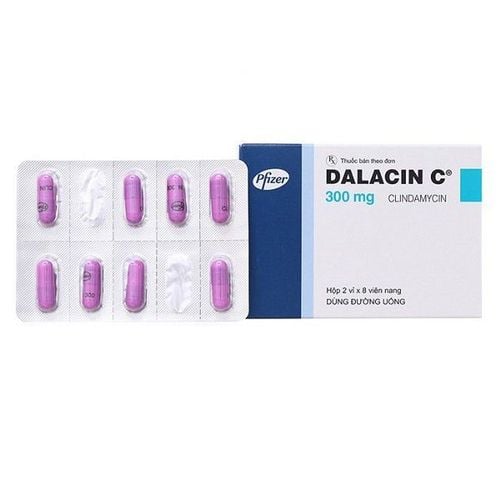This is an automatically translated article.
Posted by Master, Doctor Mai Vien Phuong - Department of Examination & Internal Medicine - Vinmec Central Park International General Hospital
With an aging population, the number of older patients with Crohn's disease (CD) and ulcerative colitis (UC) and the healthcare costs associated with their care is expected to increase. This trend will lead to the next increase in the use of immunosuppressants. The risk of infection, especially from opportunistic infections during immunomodulation and biologic therapy, is a primary concern for providers and a common reason for hospitalization.
In addition to medication, ongoing active inflammatory bowel disease, multiple comorbidities, malnutrition, immunoassays, hospitalization, and surgery all contribute to an increased risk of infection. Recognizing and addressing these risk factors is key to cost-effectively managing elderly IBD patients.
1. Overview of inflammatory bowel disease
Inflammatory bowel diseases (IBD), which are chronic inflammatory conditions of the intestines, include Crohn's disease (CD) and ulcerative colitis (UC). Long thought to be a disease of the young, an increasing number of IBD patients are over the age of 65. Compared with elderly patients without inflammatory bowel disease, the costs associated with the care of patients with IBD . Elderly can be twice as high.
Unique challenges exist in the diagnosis and treatment of Crohn's disease and ulcerative colitis in the elderly. Comorbidities and atypical clinical presentations may cast doubt on the diagnosis. The management of inflammatory bowel disease can be complicated by the combined functional and disease status of the patient even though the course of the disease may be milder when diagnosed at an advanced age.

2. Epidemiology and Treatment Costs
Between 10-30% of individuals with IBD are over 60 years of age, while 10-15% are diagnosed as elderly. As the prevalence of inflammatory bowel disease increases, and because the disease-associated life expectancy is relatively unchanged, the number of elderly people with Crohn's disease and ulcerative colitis is expected to increase. As many IBD patients move into old age with their disease, this requires lifelong care. By 2050, the US census office predicts the number of seniors is expected to double. At the same time, spending on health care will increase from 2.6% of gross domestic product to 9.2%. Compared with patients without inflammatory bowel disease, patients with inflammatory bowel disease are 5 times more likely to incur health care costs, 5 times more likely to require outpatient visits, and more likely to require inpatient treatment. 3 times more.
3. Risk factors for serious infection in the elderly with inflammatory bowel disease
Many factors influence the risk of infection in elderly IBD patients. Multiple comorbidities, immunodeficiency, malnutrition, immunosuppressive drugs, hospitalization, and surgery all play an important role. When all potential factors were evaluated, active enteritis was the strongest predictor of serious infection. Treatment with the biologic drug infliximab was associated with a higher risk of infection in the absence of higher mortality, suggesting that the mortality rate in active disease is higher than the risks associated with anti-TNF drugs. , including infections.
Persistent active enteritis can lead to infection
Persistent active enteritis can lead to infection. Disruption of the gut microbiota, which is thought to be partly involved in the pathogenesis and alteration of disease activity in inflammatory bowel disease, is a predisposing factor to Clostridium difficile infection. C. difficile colitis, like CMV colitis, is associated with more severe inflammatory bowel disease and may reflect incompletely controlled active inflammation. Aging is an important risk factor for the development of C. difficile infection, which in the elderly is associated with significant morbidity and mortality, accounting for 20% remission and mortality. 9% mortality in hospitalized patients.

Multiple comorbidities
As the prevalence of multiple diseases increases with age, multiple comorbidities become more common over time, affecting 35% of Americans over age 65 and 70% of those over age 80. One-third of patients over 65 years of age have four or more comorbidities, and both the number and proportion of patients with multiple comorbidities are expected to increase. Incidental costs are disclosing, as two-thirds of Medicaid patients with comorbidities account for approximately 96% of treatment costs in overseas centres.
In the elderly with inflammatory bowel disease, the most common comorbidities, cardiovascular disease, chronic lung disease, and diabetes, can increase susceptibility to complications and influence treatment options. medical treatment. For example, anti-TNFs are contraindicated in New York Heart Association class III/IV heart failure patients, while corticosteroids can worsen diabetes
Multidrug use problem
Disease Combination therapy often requires multiple prescriptions, and older IBD patients take an average of 7 medications per day. In addition, elderly patients are at increased risk of adverse events due to altered drug metabolism and decreased drug clearance in the elderly. Against the background of lower glomerular filtration rate, clearance of corticosteroids in elderly patients is reduced, causing any systemic adverse effects, including infection. Multiple drug use is associated with an increased risk of drug interactions and drug conditions, which must be carefully considered when managing elderly patients with inflammatory bowel disease. For example, use of antibiotics and proton pump inhibitors can lead to C. difficile colitis.
Malnutrition
In inflammatory bowel disease, malnutrition can be caused by resection of the small intestine, malabsorption, medication side effects, and dietary changes. Comorbidities affect the nutritional status of the elderly. In a study across Europe, the United States and South Africa, more than one-third of hospitalized older adults met the criteria for malnutrition. In active inflammatory bowel disease, severe malnutrition affects one-third of patients and is a risk factor for death in hospitalized patients. Poor nutrition is a recognized risk factor for opportunistic infections

Immunodeficiency
While poor nutrition is associated with a decline in the immune system, aging is associated with immunodeficiency, a gradual decline in the immune system associated with impaired stem cell regeneration decreased, neutrophil and macrophage dysfunction, altered barrier function, and decreased production of B cells and T-cells. These changes can increase susceptibility to infection and prolongation of infection due to an inability to clear the pathogen. The elderly have been shown to have higher rates of sepsis and sepsis, and the rate of sepsis occurring in the elderly increases 20% faster than in younger patients. In older IBD patients receiving immunosuppressive therapy, the risk of severe infection is higher than in younger patients
The most common types of infection in patients with IBD
In general, respiratory tract infections Respiratory tract infections, including pneumococcal pneumonia and influenza, are the most common infections in patients with inflammatory bowel disease. Among the opportunistic infections in Crohn's disease and ulcerative colitis, herpes zoster can be seen most frequently. Many of the infections common in inflammatory bowel disease are vaccine-preventable, and in older adults, these infections tend to have a more severe course. However, vaccination rates in IBD patients are suboptimal, in part because it is not the point of discussion during office visits. Once a patient is scheduled for vaccination, immunosuppressive therapy may decrease their effectiveness. Compared with patients on monotherapy with biologics or thiopurine, adults on dual therapy had a reduced response to the vaccine.
Currently, Vinmec International General Hospital is a prestigious address trusted by many patients in performing diagnostic techniques for digestive diseases, inflammatory bowel disease, short bowel syndrome, diseases that cause chronic diarrhea , Crohn's disease, ectopic gastric mucosa in the esophagus, ...
Vinmec Hospital with modern facilities and equipment and a team of experienced specialists, always dedicated to medical examination and treatment , customers can rest assured with gastroscopy, esophagoscopy service at Vinmec International General Hospital.
Please dial HOTLINE for more information or register for an appointment HERE. Download MyVinmec app to make appointments faster and to manage your bookings easily.














